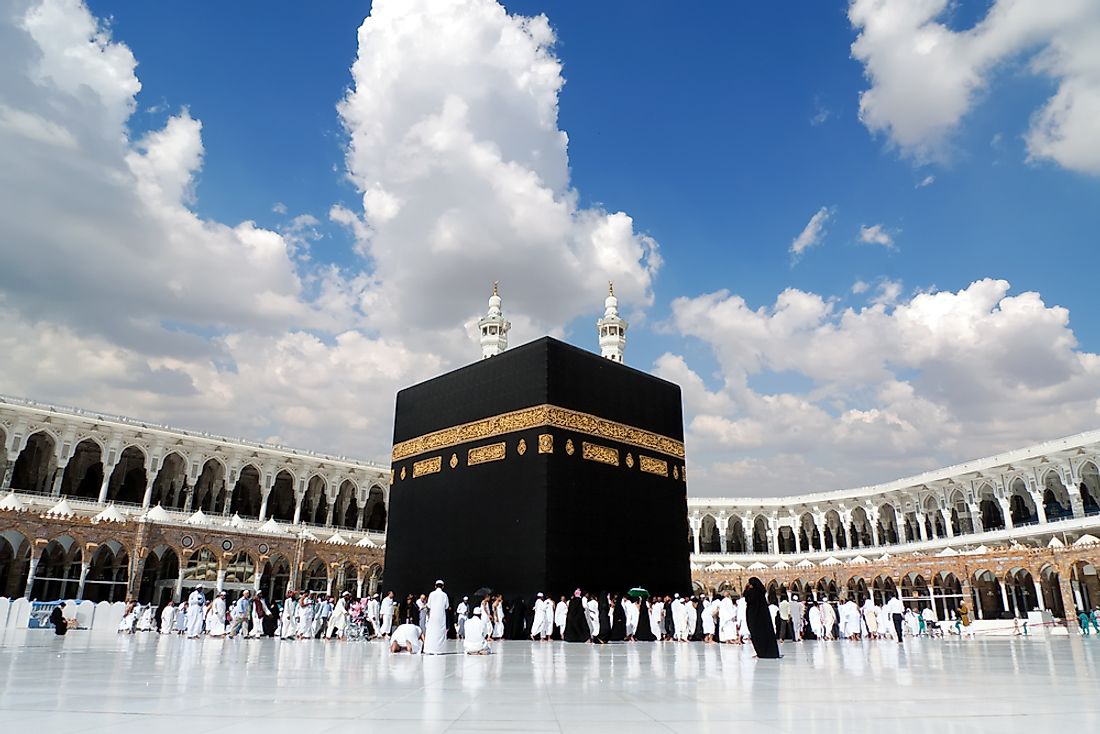Religion in Saudi Arabia

Saudi Arabia, officially referred to as the Kingdom of Saudi Arabia, is a theocratic monarchy. The overwhelming majority of the population of Saudi Arabia identifies as Muslim.
Religion affects all facets of life in Saudi Arabia. The Saudi government exercises severe restrictions based on firm Sharia Laws and all citizens in the county must practice the Islamic faith. Conversion to another religion in Saudi Arabia is considered an act of apostasy and a crime punishable by death although life sentence is the most applicable form of punishment used. Freedom of religion is nonexistent in Saudi Arabia although the state guarantees and protect private worship for non-Muslims. Sunni Islam is the only religion that is allowed to practice religion publicly, the Mutaween (religious police) enforce this law and prosecute all those that contradict it.
"Religious Apartheid" in Saudi Arabia
The Kingdom Of Saudi Arabia's treatment of religious minorities has been described as religious apartheid by both Saudi Arabian and non-Saudi critics alike. The country has monopolized religion, and there is no tolerance of other religions beliefs, ideologies, and symbols. Other Muslims such as the Shi’ite Muslims are not allowed to practice the religion or serve in any state office including the public service. Tourists visiting the country are not allowed to carry religious symbols such as the cross and the bible. Although the state has publicly claimed that it is protecting the rights of non-Muslims to worship privately, human rights and non-Muslim organization have claimed that the state does not provide the guidelines to private or public worships and frequently arrest non-Muslims. The Shi’a minority are subjected to sanctions and economic discrimination practices. Even though the Minority Shi’a are allowed to celebrate their holiday of Ashura, they are not allowed to hold large celebratory events or gather in large numbers to celebrate the event. The Islamic
Government Policies and Regulations Regarding Freedom Of Religion
The constitution of Saudi Arabia, which is based on the Quran and the Sunna, establishes the country as an Arab Islamic State. It recognizes the Sunni Islam as the official religion and Sharia law as the legislature. The state does not legally recognize the freedom religion and neither the state government nor the society recognizes the separation of religion and the state. The county is opposed to the Muslim reforms of the 21st Century that seek to reinterpret the Islamic Law to recognize the social and economic developments, personal autonomy, gender relations, and democracy. The law recognizes the children born to Saudi fathers as Muslims and must be integrated into Islamic culture. All non-citizens who enter the country must carry a “Muslim” or “non- Muslim” identity card. Sunni religious leaders receive monthly stipends while other religious leaders are not entitled the same. All academic institution in the country practices Islamic religious beliefs regardless of the student’s personal beliefs.
The Significance of Mecca and Medina to Muslims Around the World
The cities of Mecca and Medina in Saudi Arabia are considered to be the two holiest cities to all followers of the Islamic faith. The Ka'ba (House of God) is the most sacred point in the Islamic faith, and it is located in Mecca. The Sunni Islam believe that Prophet Muhammad designated Mecca as the holy city and all Muslims should face its direction when praying. Every pilgrim is required to make a pilgrimage journey to Mecca at least once in their lifetime. The Mecca is also home to the Masjid al Haram, the holiest mosque in Sunni Islam. After fleeing Mecca, Muhammad traversed to Medina, the second holiest city after Mecca, and established his first congregation of followers in the city at what is now recognized as the "The Prophet's Mosque." Non-Muslims are not permitted entry into Mecca's Holy Ka’ba area and its immediate surroundings.
Non-Muslims in Saudi Arabia
The very small non-Muslim population that lives in Saudi Arabia is mostly made up of foreign workers. However, these residents are not allowed to practice their religions if they are not Muslim. Anyone who is looking to attain Saudi Arabian citizenship is required to convert to Islam.
Religion in Saudi Arabia
| Rank | Religion | Population (Percentage) |
|---|---|---|
| 1 | Islam | 99.3 |
| 2 | Other | 0.7 |







